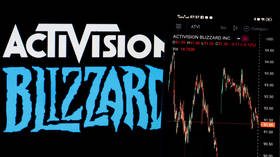What will Microsoft do with Activision Blizzard?


In a move that is already sending shockwaves throughout the video game industry, Microsoft has announced plans to acquire Activision Blizzard, the publisher of Call of Duty, Overwatch, and some of the most popular video games in history. It is the largest acquisition in the company’s history – and one that effectively turns Microsoft into the Disney of video games.
From hardcore titles like Diablo and Call of Duty to casual games like Hearthstone and Candy Crush, Activision published it all – and now Microsoft is set to acquire the company for a cool $68.7 billion. It’s a figure almost 10 times more than the $7.5 billion it paid to acquire Bethesda in 2020, the publisher and developer of the Fallout and The Elder Scrolls franchises.
In its announcement of the acquisition, Microsoft’s Phil Spencer promised that the company will offer many of Activision Blizzard’s titles on the Xbox Game Pass and PC Game Pass, including classics from the publisher’s massive catalog and upcoming titles.
With its bottomless pockets, Microsoft will undoubtedly be able to support Activision Blizzard’s continued development of titles that are currently struggling to see release, such as Overwatch 2 and Diablo IV – a boon for fans of the franchises and gamers in general.
The impending acquisition of the Call of Duty and Overwatch publisher comes at a precarious time for Activision Blizzard, which is currently in the middle of dealing with discrimination lawsuits and scandals revolving around its workplace culture. The situation has prompted multiple calls for CEO Bobby Kotick to resign.
While Microsoft did not offer an exact comment on the scandals surrounding Activision Blizzard, Spencer wrote, “As a company, Microsoft is committed to our journey for inclusion in every aspect of gaming, among both employees and players. We deeply value individual studio cultures. We also believe that creative success and autonomy go hand-in-hand with treating every person with dignity and respect.”
“We hold all teams, and all leaders, to this commitment,” the Xbox executive said.
Bobby Kotick will remain in charge of the publisher until Microsoft’s acquisition is complete in 2023, the CEO said in an email to employees, in which he lauded the publisher’s future through Microsoft as it engages with the so-called ‘metaverse’. Kotick offered that Activision Blizzard will operate autonomously under Microsoft’s watch following the purchase.
In contrast to other game publishers, Microsoft has allowed its acquisitions to remain autonomous, without too much interference. This much is true for its acquisitions of Bethesda, Obsidian, InXile, and Minecraft developer Mojang – but Activision Blizzard might require a more hands-on approach.
As Microsoft picks up the publisher’s baggage and deals with the wreckage left in the wake of multiple, high-profile scandals, it remains unclear if Microsoft will retain much of the existing talent responsible for the situation Activision Blizzard is currently in.
At the present, the current administration handles its controversies by introducing ‘woke’ additions and changes to its games instead of addressing the company culture – and it’s a practice that threatens to continue under Microsoft’s reign. Simply put, Microsoft can’t afford to buy a company already riddled with lawsuits and bad mojo and not clean house. It simply must.
What does the purchase mean for the gaming industry at large? For starters, Sony will be hardest hit by the acquisition given that much of its PlayStation revenue comes from hosting Activision’s Call of Duty franchise, which it has previously offered exclusives for over the Xbox.
Should Microsoft opt to turn Activision Blizzard’s titles into platform exclusives for the Xbox and PC, Sony will be forced to create new franchises or revive old ones like Killzone and Resistance to compete against Call of Duty, the world’s most popular first-person shooter. Let’s not even get started on how Microsoft owns Minecraft and The Elder Scrolls.
The monumental acquisition of one of the world’s largest video game publishers effectively shifts the power dynamic to Microsoft’s favor. It’s exciting to see how Sony and other publishers will respond to the move. What a time to be alive.
The statements, views and opinions expressed in this column are solely those of the author and do not necessarily represent those of RT.
The statements, views and opinions expressed in this column are solely those of the author and do not necessarily represent those of RT.